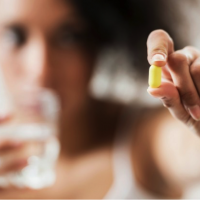
Cochrane Review provides guidance on if daily iron supplementation shows benefits for women
Iron-deficiency is a shortage of iron stored in the body and anaemia is caused by low levels of haemoglobin - healthy red blood cells - in the blood. Iron-deficiency and anaemia are common problems globally, especially in low-income countries and with women in all contexts. Among non-pregnant women, around one third are anaemic worldwide. Low levels of iron can eventually cause anaemia. This iron-deficiency anaemia impairs health and well-being in women, and iron supplements - tablets, capsules, syrup or drops containing iron - are a commonly used intervention to prevent and treat this condition.
A team of Cochrane authors based in Australia, Canada, and the United Kingdom worked with Cochrane Developmental, Psychosocial and Learning Problems Group to investigate the health benefits of taking oral iron supplements for at least five days per week, for non-pregnant women of reproductive age (menstruating women), compared to not taking iron. The results of the review include 67 trials with 8,506 participants.
There was evidence that iron supplements reduce the prevalence of anaemia and iron deficiency, and raise levels of haemoglobin in the blood and in iron stores. Iron supplementation clearly increases the risk of, gastrointestinal symptomatic side effects.
“Daily iron supplementation of 30-60 mg of elemental iron tablets for adult and adolescent women is not a bad idea. It was found to effectively reduce the prevalence of anaemia and iron deficiency, raises haemoglobin and iron stores, improves exercise performance and reduces symptomatic fatigue. However these benefits come at the expense of increased constipation and abdominal pain, which should be taken into consideration by the individual and clinicians,” said Michael Sze Yuan Low, the lead author of the Cochrane Review. “This is an important finding, with good evidence behind it. This review has recently been cited in the World Health Organization guideline on 'Daily Iron Supplementation in Adult Women and Adolescent Girls' where it will help drive future policies and clinical care.’
Visit the Cochrane Developmental, Psychosocial and Learning Problems Group website
